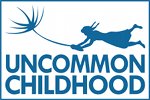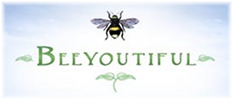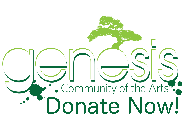What’s The Most Educational Thing We’ve Done For Our Kids?
May 13, 2011 in Africa, blog, Education, Travelogue, Tunisia
We were recently asked, for an interview: “What is the most educational thing you’ve done with/for your kids?”
This was our answer:
Hitting the road and traveling full time with our kids is by far the best thing we’ve ever done. Every day provides new opportunities to discover and learn together. We’ve had so many unforgettable experiences that have been educational:
- Exploring ancient ruins on three continents
- Visiting Buchenwald and other WW2 sites
- Learning to weave, make coffee and chocolate in Guatemala
- Getting the kids SCUBA certified in Belize
- Exploring the Sahara on camels
- Visiting world class museums in London, Berlin, Prague, Paris, Rome, Boston, New York, Mexico City and so many other places
- There are too many to list
Over all, the best thing we’ve done, educationally, for our kids was to spend three months wintering in Tunisia. Tunisia is a tiny North African country and it’s government, at the time we were living there, was a Theocratic (Muslim) Dictatorship.
One of the things we’ve wanted to accomplish with our children through world travel has been to help them to see that people are people, no matter where they live, what they look like, or how they believe.
Spending three months living in an apartment deep in the Muslim world allowed our American kids to see Muslims as people, not propaganda posters.
This is a lesson I wouldn’t trade for anything.
They learned to live by the daily rhythm of the call to prayer from the mosque, to greet veiled ladies in the market in Arabic, to wrap a Bedouin scarf properly to keep the sand out of their faces in the desert, to sip the strong tea and dip the bread in honey “just right.”
They learned the depth of the meaning of “Inshah Allah” from our neighbours, our cab driver and our friend who lived in the troglodyte house near Matmata.
They learned about the religious differences between Christianity and Islam during Eid-Al-Kebir (when the Muslims celebrate God providing a ram to Abraham in place of his son ISHMAEL as a sacrifice.)
They learned that there are many similarities as well.
Not all of the lessons were easy, or fun. They learned what it feels like to be a stranger in a strange land, illiterate, unable to communicate (Mom speaks French, but none of us read or speak Arabic).
They learned about the harshness that sometimes results in a patriarchal society where children and women are subordinates when Elisha was slapped hard across the face by a man who was a complete stranger when out playing one afternoon.
They learned what it’s like to be discriminated against simply because or their nationality when we, as Americans, had to provide more documentation than anyone else to get internet and then were ratcheted down in our access as a result.
They learned what it is like to be discriminated against based on skin colour and religious persuasion when the artichoke seller changed his call to “Artichokes on sale to Arabs not whites,” when he saw us coming, and when rice was tripled in price for us, and when the secret police “guarded our bikes” for us every week outside the church we attended with a few other western Christians. They watched our apartment too.
When the unrest in Tunisia began over this winter we watched with our hearts in our throats.
The children were very quiet when we learned the police station down the street from our house had been burned.
We wondered aloud about the state of our Muslim friends, Monya, our bread lady and her sweet kids, Aziz, my cab driver who’d screech to a halt anywhere he saw me walking and yell, “Hey Canada, where are we going today?” in French. The lady who lived upstairs who’s husband beat her at least three times a week. Were they okay?
The best educational experience our kids have had didn’t just happen over the winter in Tunisia.
It happens every day as we walk the planet.
The best educational experience they have is putting faces on the faceless, names on the propaganda posters and in forming relationships with the exploited, the war-torn, or the persecuted.
It is, perhaps, the best lesson any of us could ever learn.




 RSS - Posts
RSS - Posts


























I continue to be inspired by your courage. Tim & I have been talking a lot about what to do…next. International travel is inside of our hearts, but maybe not right away.
“Putting faces on the faceless and names on the propaganda posters”. That’s exactly it. That’s education. Learning by seeing and doing and experiencing. Grown-ups need that just as much, maybe more, but kids are at the distinct advantage of not yet having formed (as many?) prejudices. Together, all of us traveling families can create a new generation of open-minded leaders.
Thanks for the continuing inspiration. You guys are amazing. Can’t wait to soak up more this weekend!
Elisha was slapped! I have to hear more about this. I don’t know what I would do in that instance. I am pretty tolerant, but . . . . Please tell more.
Depsite the troubles. I see why you hold this experience in the highest regard.
Thanks for your kind words… We love your family and are excited to share some adventures with you!
Yep, with an open hand, hard across the face. He came in crying with a big red welt. We were not pleased, as you might imagine. But, we decided not to engage this man in a confrontation, instead it was an excellent teachable moment for our kids about the cultural differences that aren’t always pretty, and the very real need for us, as travelers to be extra conscious of being respectful and keeping our eyes (and minds) open so that we can avoid inadvertent offenses as we travel.
What an amazing post! I loved your answer to the question. You have inspired me with your amazing approach to world learning. Truly you are raising global citizens.
Thanks Fay… glad you liked it, and nice to meet you! We’re doing our best to do exactly that: Raise global citizens. Do you have kids? Are you a traveler? How’d you find us?
I relate to so much of how you’re raising your children, and I love how you put it – I am sure the kids are benefitting from this a million times over
[…] Edventure Project – If you need a family to model your travels on, this is the one! Jennifer, Tony and the kids are quite amazing. After setting out on the travels they had saved and saved for, they lost all their money in the GFC one night while they were sleeping!! AND they bounced back. AND they decided to travel for much longer than originally anticipated! They carry musical instruments when they travel and so much more. I’m just so impressed! (And so thankful Kate left her clarinet at home!) […]
[…] What’s The Most Educational Thing We’ve Done For Our Kids? […]